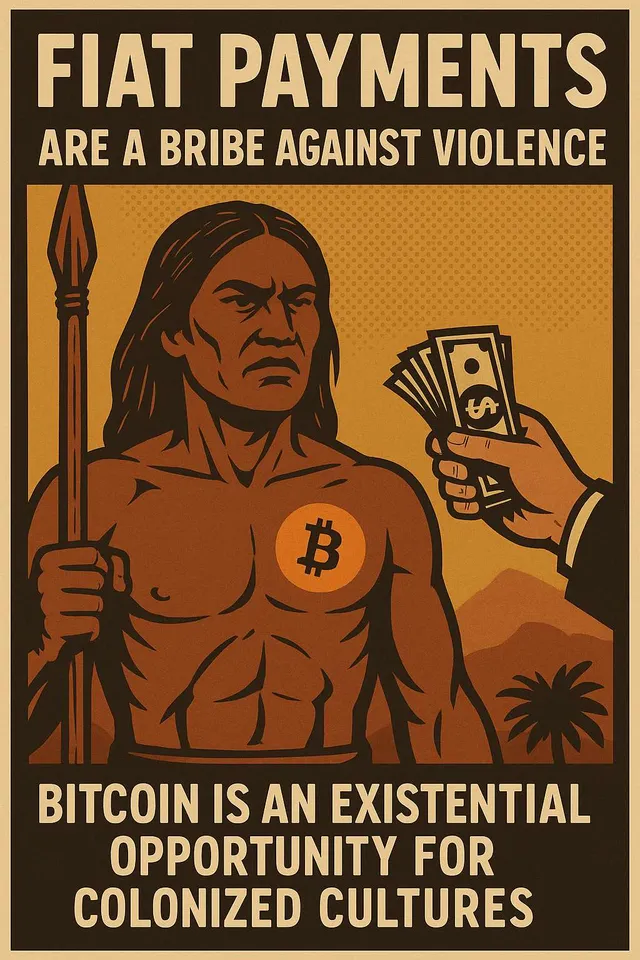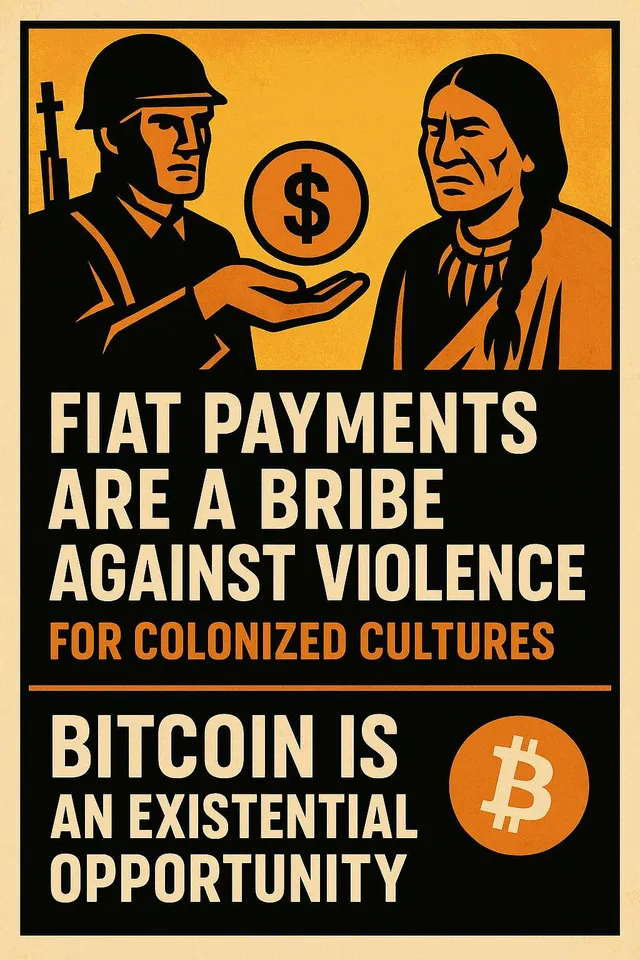
---
1. Fiat as the Bribe of Compliance
Colonizers imposed their own money systems on indigenous peoples — currencies that were:
Unbacked by local consent
Enforced by law, violence, or taxation
Decoupled from native economic rhythms or moral values
The daily use of fiat, then, became a coercive normalization of colonial rule. Payments in fiat were not gifts of cooperation — they were bribes to maintain silence, to pacify revolt, and to simulate "peace."
---
2. Bitcoin as the End of Pacification
Bitcoin removes the bribe and exposes the raw asymmetry:
It does not require trust in colonizer institutions.
It is permissionless, borderless, and incorruptible.
It restores value sovereignty to people who have been robbed of it.
For the colonized, Bitcoin offers the ability to exit the fiat system without needing to ask permission — to store value, mobilize capital, and organize resistance on a neutral ledger.
---
3. Existential Opportunity for Colonized Cultures
This is not just financial. It is existential.
Language was colonized.
History was rewritten.
Land was stolen.
Currency was weaponized.
Now, Bitcoin allows colonized peoples to:
Reprice their labor and land beyond the legacy systems.
Coordinate globally without IMF puppets or World Bank gatekeepers.
Store generational wealth that cannot be seized or inflated away.
It is an opportunity to reverse the direction of extraction, to make peace with justice, not with bribes.
---
In summary:
> Fiat payments are the hush money of empire. Bitcoin is the whistle of memory, justice, and revenge.

For colonized cultures, Bitcoin isn’t just a currency — it’s a reclamation protocol. A chance to finally withdraw consent from a system built on theft — and write a new economy in their own code.
Would you like this structured as a visual poster or LinkedIn post?
